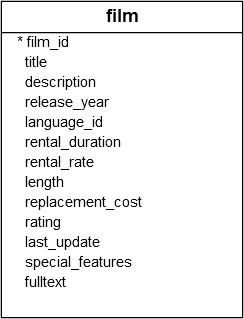PostgreSQL REGEXP_MATCHES() Function
Summary: in this tutorial, you will learn how to use the PostgreSQL REGEXP_MATCHES() function to extract substrings from a string based on a regular expression.
Introduction to the PostgreSQL REGEXP_MATCHES() function
The REGEXP_MATCHES() function allows you to extract substrings from a string based on a regular expression pattern.
Here’s the basic syntax for the PostgreSQL REGEXP_MATCHES() function:
REGEXP_MATCHES(source_string, pattern [, flags])The REGEXP_MATCHES() function accepts three arguments:
1) source
The source is a string that you want to extract substrings that match a regular expression.
2) pattern
The pattern is a POSIX regular expression for matching.
3) flags
The flags argument is one or more characters that control the behavior of the function. For example, i allows you to match case-insensitively.
The REGEXP_MATCHES() function returns a set of text, even if the result array only contains a single element.
PostgreSQL REGEXP_MATCHES() function examples
Let’s explore some examples of using the REGEXP_MATCHES() function.
1) Basic REGEXP_MATCHES() function examples
The following example uses the REGEXP_MATCHES() function to extract hashtags such as PostgreSQL and REGEXP_MATCHES from a string:
SELECT
REGEXP_MATCHES('Learning #PostgreSQL #REGEXP_MATCHES',
'#([A-Za-z0-9_]+)',
'g');Output:
regexp_matches
------------------
{PostgreSQL}
{REGEXP_MATCHES}
(2 rows)In this example, the following regular expression matches any word that starts with the hash character (#) and is followed by any alphanumeric characters or underscore (_).
#([A-Za-z0-9_]+)The g flag argument is for the global search.
The result set has two rows, each is an array (text[]), which indicates that there are two matches.
If you want to transform the elements of the array into separate rows, you can use the UNNEST() function:
SELECT
UNNEST(REGEXP_MATCHES('Learning #PostgreSQL #REGEXP_MATCHES',
'#([A-Za-z0-9_]+)',
'g')) result;Output:
result
----------------
PostgreSQL
REGEXP_MATCHES
(2 rows)2) Using the PostgreSQL REGEXP_MATCHES() function with table data example
We’ll use the following film table from the sample database:
 The following statement uses the
The following statement uses the REGEXP_MATCHES() function to retrieve films with descriptions containing the word Cat or Dog:
SELECT
REGEXP_MATCHES(description, 'Cat | Dog ') cat_or_dog,
description
FROM
film;Output:
cat_or_dog | description
------------+--------------------------------------------------------------------------------------------------------------------
{"Cat "} | A Epic Drama of a Cat And a Explorer who must Redeem a Moose in Australia
{"Cat "} | A Boring Epistle of a Butler And a Cat who must Fight a Pastry Chef in A MySQL Convention
{"Cat "} | A Brilliant Drama of a Cat And a Mad Scientist who must Battle a Feminist in A MySQL Convention
{" Dog "} | A Fast-Paced Character Study of a Composer And a Dog who must Outgun a Boat in An Abandoned Fun House
{" Dog "} | A Touching Panorama of a Waitress And a Woman who must Outrace a Dog in An Abandoned Amusement Park
{" Dog "} | A Astounding Story of a Dog And a Squirrel who must Defeat a Woman in An Abandoned Amusement Park
...Summary
- Use the PostgreSQL
REGEXP_MATCHES()function to extract text from a string based on a regular expression.